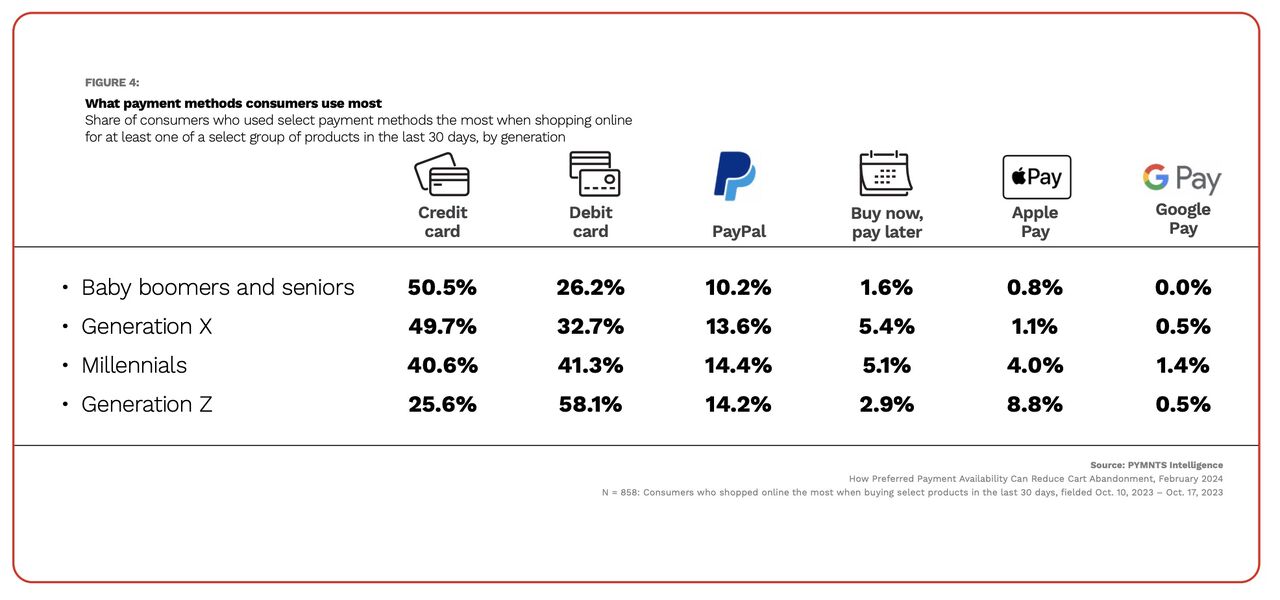Frictionless Payments Improve Conversion Rates
Providing a seamless payment experience directly impacts whether a shopper completes their purchase. The fewer the steps, the lower the friction—and the higher the conversion.
Generational Differences in Cart Abandonment Behavior
Millennials and Gen Z Lead in Cart Abandonment
- Millennials abandoned an average of five carts in the past 30 days.
- Gen Z follows closely, averaging four abandoned carts.
In contrast:
Baby Boomers and Seniors Abandon Far Fewer Carts
- Averaging less than one cart abandonment in the same period.
- This suggests older generations shop with more transactional intent.
Why Younger Shoppers Abandon Carts More Often
Generational cart abandonment may be tied to:
- Ease of browsing
- Abundance of choices
- Search for better deals or discounts
- Using carts as a temporary wishlist or comparison tool

Where Cart Abandonment Is Most Common
High Abandonment in Clothing and Accessories
- Millennials and Gen Z average two abandoned carts in this category.
- That’s five times higher than boomers or seniors.
Lower Abandonment in Groceries and Big-Ticket Items
Categories with the lowest abandonment rates across all generations:
These purchases tend to be more deliberate and immediate.
- Groceries
- Electronics
- Home furnishings and appliances
These purchases tend to be more deliberate and immediate.
How Merchants Can Reduce Cart Abandonment
Streamline the Checkout Process
- Offer frictionless, fast payment flows
- Remove unnecessary form fields
- Optimize for mobile-first shoppers
Give Shoppers the Payment Methods They Trust
- Include Pay by Bank and digital wallets
- Minimize drop-offs due to lack of preferred options






